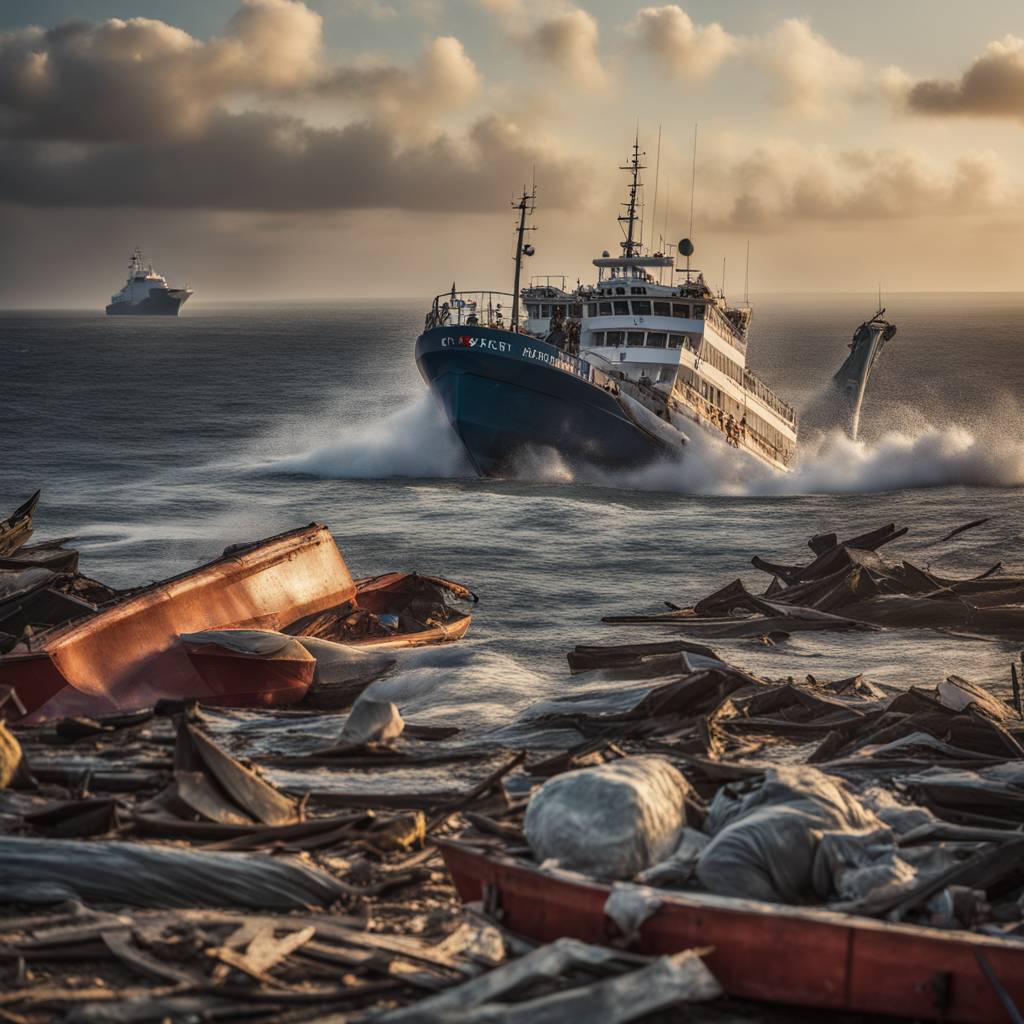At least 94 people, including many children, tragically lost their lives after a makeshift ferry sank off Mozambique’s northern coast. The boat, which was carrying 130 people, capsized between Lunga and the Island of Mozambique in the Nampula province. According to Lourenco Machado, an administrator of the country’s Maritime Transport Institute, 26 people are still missing as rescue efforts are ongoing. The vessel was an overloaded fishing boat that was not licensed to transport people, and initial reports suggest it was hit by a tidal wave.
Reports indicate that some people on the boat were traveling to attend a fair, while others were attempting to flee from Lunga to Mozambique to escape a cholera outbreak in the region. Jaime Neto, the secretary of state in Nampula province, stated that misinformation about the alleged cholera outbreak led people to panic and board the overcrowded boat. He noted that many of the victims were children. Mozambique, along with neighboring Zimbabwe and Malawi, has been grappling with a deadly cholera outbreak in recent months.
Due to its poor road network, many areas of Mozambique can only be accessed by boat, making them vulnerable during emergencies such as this. The incident underscores the challenges faced by the region in terms of transportation infrastructure and emergency response. The devastating loss of life on the ferry highlights the urgent need for improved safety regulations for maritime transport in Mozambique and other parts of southern Africa. Authorities must work to prevent similar tragedies in the future and ensure that proper safety measures are in place for all forms of transportation.
As rescue efforts continue and the families of the victims mourn their loved ones, it is a time of great sadness and reflection for the communities affected by this tragedy. The impact of the ferry sinking will be felt for a long time to come, as families mourn those lost and attempt to rebuild their lives in the aftermath of this devastating event. The international community must also come together to provide support and assistance to the affected areas as they deal with the aftermath of this tragedy. Our thoughts are with all those who have been impacted by this heartbreaking incident.
The ferry sinking in Mozambique serves as a stark reminder of the importance of proper safety measures and regulations in maritime transportation. The incident highlights the dangers posed by overcrowded and unlicensed vessels, as well as the need for improved emergency response capabilities in the region. As authorities investigate the causes of the tragedy and work to prevent similar incidents in the future, it is essential that lessons are learned and implemented to protect the lives of those who rely on water transportation for their livelihoods. The victims of the ferry sinking will not be forgotten, and their memory will serve as a call to action for improved safety standards in Mozambique and beyond.
In the wake of this tragedy, Mozambique and its neighboring countries must come together to address the underlying issues that contributed to the ferry sinking. From improving transportation infrastructure to ensuring access to accurate information during emergencies, there are many steps that can be taken to prevent similar incidents in the future. The international community also has a role to play in supporting the affected communities and advocating for stronger safety regulations in maritime transport. As the families of the victims mourn their loss and begin the long process of healing, it is essential that we all work together to prevent tragedies like this from occurring again. The memory of those who perished in this incident must serve as a catalyst for positive change and progress in the region’s transportation systems.













